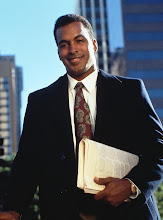Technology is; of course, very ancient-indeed, as ancient as mankind. Many of the most important inventions can be traced far back in history, some of them to prehistoric times. From the practices of farming and of the potter's trade to the development of gun-powder and of the magnetic compass, the list of the technological achievements whose originators will always remain unknown is very long. Likewise, many abstract scientific concepts have come to us from our Oriental and Greek heritage. Mathematical formulas and astronomical observations, ideas concerning the structure of matter and the evolutionary changes that occur in living things, and so many other problems of theoretical science had been formulated and some of them converted into practical applications long before the modern era. But there does not seem to have existed in the distant past the concept that it could be disciplined and organised into a systematic body of operations applicable to all human problems. What is actually peculiar to the modern world is, the belief that scientific knowledge can be used at will by man to master and exploit nature for his own ends.
The change in point of view which led to the modern attitude toward science seems to have taken place sometime around the fourteenth century in Western Europe. Since there is no reason to assume that the human brain was less well endowed in antiquity than it was during the Renaissance when the modern attitude developed, historians have found it necessary to appeal to all sorts of extraneous reasons to account for the surprising fact that science was practised for solo in such an amateurish manner. One reason frequently given is that widespread practice of slavery prevented the Orientals and the Greeks from engaging in ordinary manual labour, and thus deprived them of the inspiration that can be derived from intimate contact with the concrete problems. Slave societies, it is claimed, do not have the urge to create effort-saving processes and equipment. It has been pointed out also that the form of Christian doctrine which prevailed in Europe until the fourteenth century weakened human interest in the affairs of this world by placing so much emphasis on the afterlife. Thus, two aspects of the social changes that occurred in the post-medieval era would have contributed to making conditions more favourable for an awakening of the modern scientific attitude: on the one hand, the emergence of the bourgeois and artisan classes with experience in the concrete affairs of the world; on the other, the more material and worldly attitude that began to develop throughout Europe at the time of the Renaissance.
The historical basis of these explanations is not entirely convincing. For example, recent studies have established that the number of slaves in Greece was far smaller than is commonly assumed, and that most of the physical work of everyday life was carried out by free men. As to medieval civilization, there is no reason to believe that its Christian faith, however deep, interfered seriously with the enjoyment of material pleasures. It seems safe to assume, therefore, that factors other than slavery and preoccupation with an afterlife were of importance in the intellectual revolution associated with the Renaissance. There is no doubt, for example, that machines and gadgets - such as mechanical clocks - were popular during late medieval times, and their operation may have encouraged the thought that the workings of nature could be explained by simple mechanical forces.
As the Florentine painters became more concerned with the naturalistic aspect of art, their probing into the structure of the human body and of other living things led to a more objective and concrete view of the world. The discovery that the time-honoured teachings of Galen on human anatomy and physiology were often erroneous, especially with regard to the functions of the heart, shook confidence in traditional knowledge. Progressively the revolt against medieval scholarsticism gave greater freedom to the mind for appealing to forms of explanation and of authority other than religious dogma and Aristotelianism. Concrete experience appeared as valid and meaningful as the evidence derived from the Gospels and from Greek and Roman writers and soon it proved more fruitful in both intellectual and material satisfactions than religious and scholastic orthodoxy.
Incomplete and unconvincing as these explanations are, they help to recapture the human atmosphere in which modern science emerged. The ferment which agitated the men of the Renaissance led them to undertake scientific studies as away to manifest their spirit of independence and their desire to do things, whatever these things might eventually turn out to be. Thus, the new science was an expression of will to power; an instrument forged by the human mind before man knew what he should use it for in any case, all accounts of the beginnings of modern science point to the fact that scientific activities are intimately interwoven with the social fabric.





No comments:
Post a Comment
Thanks for visiting, it will be nice to comment on this site. Your privacy is guaranteed, if need be. Once more, thanks for visiting!